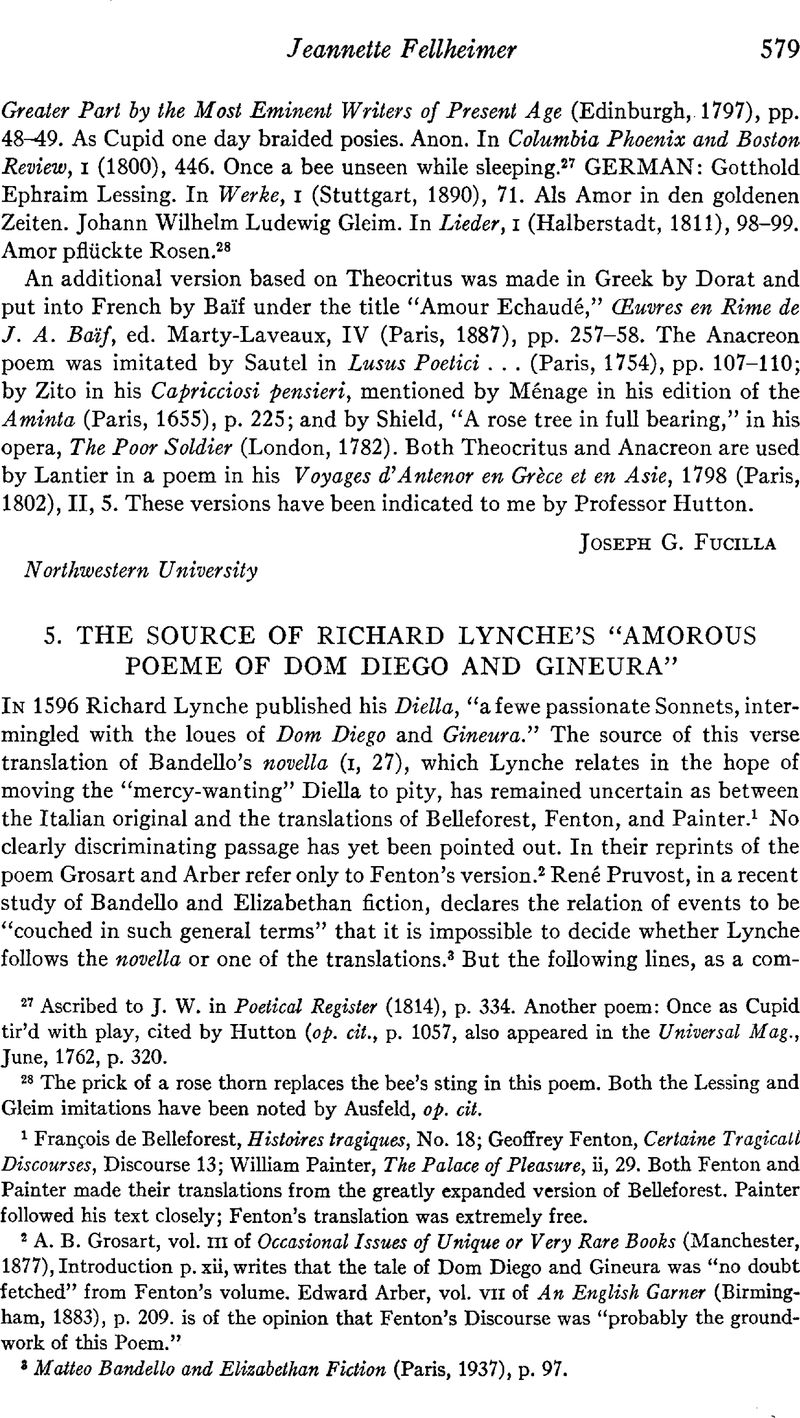No CrossRef data available.
Article contents
The Source of Richard Lynche's “Amorous Poeme of Dom Diego and Gineura”
Published online by Cambridge University Press: 02 December 2020
Abstract

- Type
- Comment and Criticism
- Information
- Copyright
- Copyright © Modern Language Association of America, 1943
References
1 François de Belleforest, Histoires tragiques, No. 18; Geoffrey Fenton, Certaine Tragicall Discourses, Discourse 13; William Painter, The Palace of Pleasure, ii, 29. Both Fenton and Painter made their translations from the greatly expanded version of Belleforest. Painter followed his text closely; Fenton's translation was extremely free.
2 A. B. Grosart, vol. m of Occasional Issues of Unique or Very Rare Books (Manchester, 1877), Introduction p. xii, writes that the tale of Dom Diego and Gineura was “no doubt fetched” from Fenton's volume. Edward Arber, vol. vii of An English Garner (Birmingham, 1883), p. 209. is of the opinion that Fenton's Discourse was “probably the groundwork of this Poem.”
3 Matteo Bandello and Elizabethan Fiction (Paris, 1937), p. 97.
4 Lynche, Poems. In Occasional Issues, iii, 66. The italics are mine.
5 Histoires tragiques (Rouen, 1603–04), i, sig. Aaar. This passage is original with Belleforest, who has greatly elaborated Bandello's description. Cf. Le Novelle, ed. Gioachino Brognoligo (Bari, 1910–12), i, 374.
6 The Palace of Pleasure, ed. Joseph Jacobs (London, 1890), iii, 252. The italics are mine. The NED's first citation oí frizzled, applied to objects other than hair, is Lynche's. Painter's earlier usage has been overlooked.
7 Certaine Tragicall Discourses (London, 1567), sigs. Nn3r–Nn3v.
8 Lynche, op. cit., p. 72. Cf. Painter, op. cit., iii, 253: “they killed now and then a Hare, a Cony, a Kid.”
9 Fenton, op. cit., sig. Nn4r.


